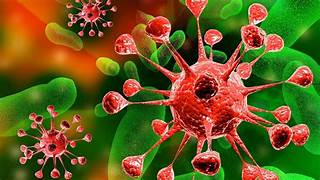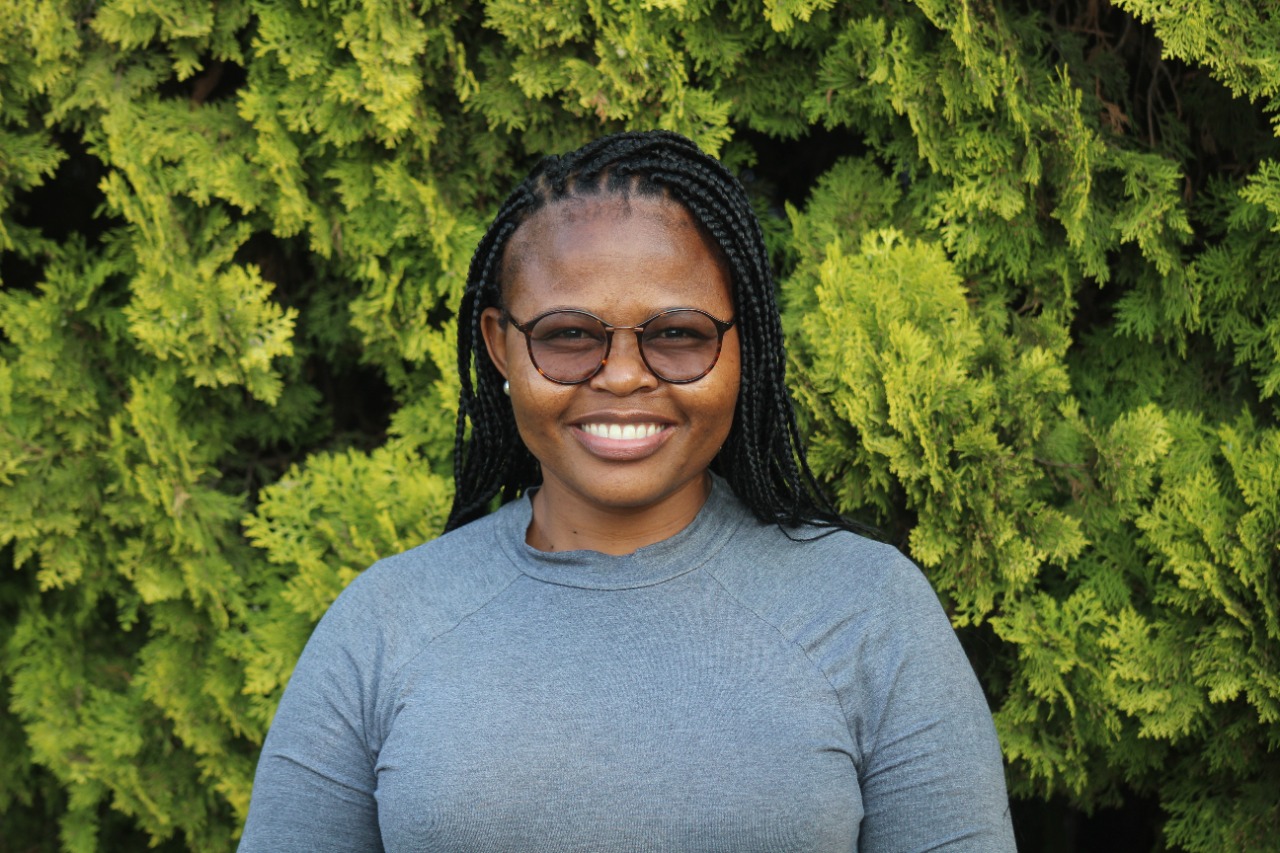

From Joyful Names to a Fight for Life: Thabelo and Thoriso’s Life-Changing Battle with Batten Disease
Est Read Time: 8 min(s) 11 sec(s)
Credit: Authors of The Plight of Rare Diseases in Southern Africa: Health and Social Services Policy Recommendations.
In the intricate tapestry of African culture, names weave a profound narrative, encapsulating the heartfelt sentiments of parents towards their children.
Often, these names serve as poignant expressions, paying homage to family lineage or commemorating significant events.
For ‘Mathabelo Ramashamole and her husband, the naming of their first and second-born sons transcends mere tradition; it carries a spiritual resonance. Thabelo, their eldest, embodies the essence of rejoicing, while Thoriso, the younger sibling, epitomises praise.
However, the poignancy of these names takes on a bitter-sweet hue as Thabelo and Thoriso, despite the auspicious meanings encapsulated in their identities, find themselves grappling with the limitations imposed by a rare genetic affliction known as Batten disease.
A 2019 study on Batten disease explains it as a group of rare genetic disorders mostly affecting children. The paper states that Batten disease is caused by certain genes and tends to run in families.
As children with Batten disease grow up, they face ongoing problems with seizures, and their abilities to see, think, and move worsen over time. In the Ramashamole family, Batten disease first appeared in nine-year-old Thabelo.
“He was already in preschool,” said Ramashamole. One day, she received a call from Thabelo’s teachers, asking her to bring an extra pair of pants because they had washed the trousers he wore to school.
“He had soiled himself. I was shocked because I had potty-trained him; he was well-trained. I wondered what had happened.”
Regular occurrence
Initially, Ramashamole thought her son had eaten something that upset his stomach, causing him to soil himself.
However, teachers informed her that this had become a regular occurrence, prompting a shocked Ramashamole to closely monitor her son.
“I realised that he no longer communicates when he wants to pass stools. I also realised a new habit, something similar to someone who is dozing off,” Ramashamole said.
She added. “When that happens, he could easily fall. It happened very quickly; it did not last even for two seconds. He would quickly stand up and make a sound that shows he is unhappy with what is happening to him.”
She said the increased episodes of Thabelo soiling himself forced her to pull him out of school. His walking movements also changed significantly, walking as if he could not measure ground level.
“His feet raised higher than usual. He also began stuttering. That is when I took him to a hospital,” Ramashamole said.
Misdiagnosis
At Queen ‘Mamohato Memorial Hospital, which is Lesotho’s main hospital, doctors told Ramashamole that her son’s brain had shrunk. But, they made a mistake and thought he had epilepsy.
Ramashamole said, “They gave him epilepsy treatment, but I didn’t see any improvement. Instead, his health got worse,” as she told Uncensored News on November 17, 2023.
There’s a document called ‘The Plight of Rare Diseases in Southern Africa: Health and Social Services Policy Recommendations,’ and it talks about how there is not enough information about rare diseases in the Southern African Development Community (SADC) region. This includes not knowing what kinds of rare diseases there are, how common they are, and where they are found.
The paper says that a lot of rare diseases go undiagnosed or get diagnosed wrongly because there is not much information about what symptoms they have. Also, there are no clear rules on how to record information about these diseases in the healthcare systems of the SADC region.
Because these diseases are so rare, the paper says there is not enough medical and scientific knowledge about them. This lack of knowledge makes it hard to diagnose, treat, and manage these diseases.
This makes it tough for people with rare diseases to get the healthcare they need, as the paper emphasises. Nthabeleng Ramoeli co-authored The Plight of Rare Diseases in Southern Africa: Health and Social Services Policy Recommendations.
On 23 November 2023, Ramoeli told Uncensored News that Lesotho relies heavily on South Africa for specialised medical care.
“We all know that we do not have the type of specialists and facilities required in Lesotho. So we have to seek them in South Africa most of the time,” Ramoeli said.
And like many Lesotho patients who need specialised care, Thabelo was transferred to Universitas Hospital in Bloemfontein, South Africa towards the end of 2020. It is there that doctors told Ramashamole that Thabelo was not epileptic.
They immediately run tests but could not find anything throughout 2021 and 2022. At this time, Ramashamole’s second born, Thoriso, had started displaying similar symptoms to that of Thabelo.
“In March 2023, they called both my first and second born sons for testing,” Ramashamole said.
Have you read?
Unmasking Africa’s Neglected Health Crisis: Rare Diseases that Escape Western Medical Radars
From Classroom to Crusader: Madotz’s Inspirational Tale Redefines Advocacy for Rare Conditions
Good Samaritan doctor
According to the authors of the position paper we talked about earlier, figuring out what was wrong with rare disease patients, as with Ramashamole’s sons, turns to be a long and challenging journey for both families and doctors.
“They tested them, and the test results couldn’t show what the problem was,” explained Ramashamole.
It was not until a doctor at the hospital offered to pay for Thabelo and Thoriso’s tests in America that they started making progress. The samples collected included skin from under their arms and blood. At the time the samples were collected, Thoriso, who is seven-years-old, could still walk.
Ramashamole shared, “Doctors thought they would be able to help the second one, that he would not suffer the same fate as his elder brother.” However, everything changed when the results came back from America.
“We were told that this is Batten disease,” said Ramashamole. It was then that she learned that Thabelo lost his eyesight.
According to America’s National Institute of Neurological Disorders and Stroke (NIH), most diagnoses of Batten disease are currently made by genetic testing. NIH says symptoms include progressive vision loss leading to blindness.
The NIH website also mentions that “developmental skills such as standing, walking, and talking may not be achieved or are gradually lost.”
It says most children with Batten disease become bedridden and unable to communicate, and some develop problems sleeping.
After the results revealed what was wrong with their bodies, the two siblings were sent back to Lesotho.
Ramashamole was told that the healthcare system in Lesotho could only help manage symptoms like seizures and phlegm. “We are constantly hospitalised because of seizures and phlegm,” said Ramashamole. Today, both siblings have lost their ability to walk.
“The firstborn was already crippled when we went to Bloemfontein. He cannot move his own body. I have to think on his behalf, like if it is time for him to poop,” Ramashamole explained.
She added that Thabelo uses a feeding tube to have his meals. While Thoriso is now unable to walk, he is still an active child who plays with his mother and younger brother, Ramashamole’s last-born son. Both Thabelo and Thoriso now use disposable diapers.
Treatment
The National Institute of Neurological Disorders and Stroke (NIH) mentions that in the United States, the Food and Drug Administration has approved cerliponase alfa to slow down the progression of symptoms in children with Batten disease.
However, at the moment, there is no specific treatment that can completely reverse the symptoms of Batten disease.
While seizures might sometimes be reduced or controlled with anticonvulsant drugs, and other medical issues can be treated as they come up, there is no cure.
Physical and occupational therapies may help individuals maintain functioning for as long as possible, according to the NIH.
Regrettably, for Ramashamole and her sons, they do not have access to drugs that could help slow down the progression of Batten disease.
Instead, Ramashamole’s main concern is making sure her children are fed. “There are times when I don’t even know what I am going to feed them. That increases my stress levels. I take out my stress on the youngest of my three sons,” shares Ramashamole.
Adding to the challenges, Ramashamole and her sons had to move from Matsieng to Lithabaneng to be closer to medical care in emergencies.
“Life in Maseru is very expensive. We are struggling. We owe rent here. I don’t know how we survived this month,” expressed Ramashamole.
Game changer

Credit: Authors of The Plight of Rare Diseases in Southern Africa: Health and Social Services Policy Recommendations.
A research conducted in June 2023 found that legal frameworks for dealing with rare diseases in Africa are not well-coordinated.
After reviewing national plans, policies, and government actions in 23 countries worldwide, the researchers discovered no published information about existing or planned national strategies related to rare diseases in Africa.
This lack of coordination is a stumbling block for the diagnosis, treatment, and research of rare conditions, especially when compared to other regions like Europe.
“The Africa health strategy for 2016–2030 addresses various health challenges on the continent, including infectious diseases like AIDS, infant mortality, and non-communicable diseases. Surprisingly, there’s no mention of rare diseases in this strategy,” according to the paper.
To tackle this issue, the authors propose a unified policy framework for managing and delivering services related to rare diseases across the SADC region. The goal is to enhance the health and well-being of individuals with rare diseases.
“We propose the establishment of policy frameworks that will guide the healthcare systems in providing timely diagnosis, access to care, treatments and drugs, social support for patients with rare diseases in the SADC region, as well as fostering research aimed at gathering relevant rare diseases evidence.”
Another study emphasises the importance of diversifying databases with a range of African data to enhance the diagnostic yield and accuracy for both African and non-African individuals with rare undiagnosed diseases.
“Fortunately, the production of genomic data from African individuals has significantly increased over the last decade,” thanks to efforts like the H3Africa Consortium, funded by the National Institute of Health (NIH) and the Wellcome Trust foundation.
While most funded projects focused on complex and infectious diseases, “research participants in those projects would qualify to populate an aggregate reference frequency database for rare diseases. An aggregate reference frequency populated with African data will be a game changer in resolving undiagnosed diseases not only in Africa but for 3.5–5.9% of the world population,” according to the study.
A mother’s strengthen
In Maseru, Ramashamole says she checked herself in at the Mohlomi Mental Hospital after hearing that Thabelo lost his eyesight.
“There were some weird sounds in my ears, and I knew that this negatively affected me. They gave me medication and scheduled counselling appointments, but I was not able to honour those appointments. I felt okay after taking medicines,” she said.
Doctors told Ramashamole and her husband that Batten disease is genetic. “My husband and I were sent to Pathcare for blood tests, results show that both of us are carriers.”
While Batten disease has drastically altered Ramashamole’s life, she believes God will come through for her.
“I know what doctors have told me, but God sees things differently. That is how I survived; I leave everything in God’s hands, may His will be done through it all. Maybe a miracle will happen; things can miraculously change.
“My everyday life principle now is that whenever I see my children, I see someone who will heal one day. I do not want to dwell on the negative. I do not believe that my children will perish like this,” Ramashamole said.
The story of Thabelo and Thoriso is not just one of struggle; it is a testament to a mother’s strength, a family’s resilience, and the enduring hope for a brighter future, even in the face of Batten disease.
Tags: